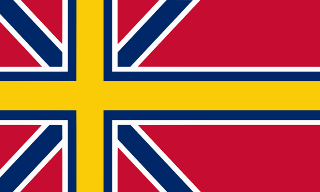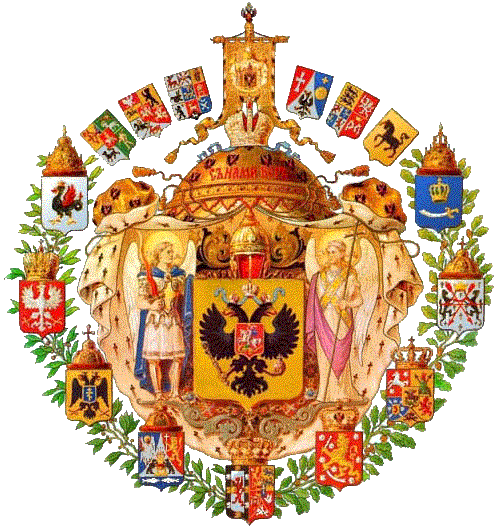Events of the World: 1865EuropeWith Britain now determined to carry on the war alone, Albert Edward produced a fiery rhetoric aimed at swaying the hearts and minds of the people. Conscription was implemented far more harshly, and many more recruits were grudgingly added to the British army.
(+5% public support, +350,000 conscripts)
Now that the French had pulled their navy out of the war, the British navy was forced to patch the holes. The ships in the Far East pulled out, leaving the task of maintaining the blockade there to their Asian allies, and moved to join those in Europe. Ships in the Med took a more defensive stance, pulling back to defend the Ottoman Empire, the British holdings in the region, and the Straits of Gibraltar. As part of this plan, British warships moved to bombard Russian cities in the Black Sea, and some Italian positions as they withdrew.
(Small decrease in income to Italy, Russia)
In North America, a force of British regulars (located for the abandoned strike on the USA) moved west against Russian Alaska. Although the Russian population in Alaska had increased significantly since the gold rush, there was little resistance, and the British troops managed to capture the gold mines fairly easily, and quickly went to work claiming the gold for themselves.
(-400 regulars to Britain, -1,100 regulars to Russia, +1 resource sublevel to Britain)
In France, a campaign to make the French public accept peace was put into action. It went fairly well, as most of the French populace didn’t want war in the first place, and they hadn’t lost much.
(-£100, +5% public support)
After the loss of the previous submarine, newer tests were prepared to better protect the vessels. There was some success, and what was learnt actually translated onto surface vessels well.
(-£530, +1 navy sublevel)
As part of the peace deal, France agreed to pay the Netherlands £800 each year for three years. The French government set aside funds in order to pay for this.
(-£2,400 to France, +£800 to the Netherlands, +£800 to the Netherlands in 1 turn, +£800 to the Netherlands in 2 turns)
Determined to not let this blockade defeat them, the Prussian High Command decided on a plan to construct a fleet of ironclads. Prussian shipyards immediately went to work.
(-£10,000, +6 ironclads, +4 ironclads in 1 turn)

Drydock of a Prussian shipyard In order to better prepare with these new vessels, the Prussian navy underwent a series of training drills.
(-£500, +1 navy sublevel)
The Prussian officers, however, were slow to catch on how to best use these vessels, unable to get out of the mindset that they were not “like a land army, but on water”. Attempts at training them did not go well.
(No effect)
After the defeat they had faced outside of Prague, the Austrian army was determined to wipe out bureaucratic inefficiency and restructure the army. It was an expensive move, but brought about some improvement.
(-£570, +1 army sublevel)
Older equipment was phased out with newer weapons, although it was a much slower process than anticipated.
(-£380, +5% equipment)
Education was reformed inside the Austrian Empire, with emphasis being placed on creating a standardized system.
(-£170, +6% education rate)
In Sweden, grants were offered to investors to promote growth of factories.
(-£520, +1 industry sublevel)
Expeditions were sent north into the Scandinavian wilds n order to better survey the resources in the nation. Valuable deposits of iron were discovered, as well as plenty of useful lumber, and exploitation began immediately.
(-£300, +1 resource sublevel)
A Mission to rescue refugees from Europe was once again launched. However, with hostilities beginning to quieten down, there were fewer than usual.
(-£90, +4,000 population)
In the Netherlands, the plan to restructure the navy with ironclads continued, with all remaining Ships-of-the-Line receiving armour.
(-£1,300, -3 ships-of-the-line, -4 sail frigates, +3 ironclads, +4 screw frigates)
Attempts were made to bring the Boer Republics onto the side of the Eighth Coalition. Although there was plenty of anti-British sentiment in the region, the Boer government was unwilling to officially declare support. However, there were a number of unauthorised raids into British South Africa.
(Small decrease in income to Britain)
With Wallonia being removed from the Netherlands, the population was now far more Dutch. A propaganda campaign managed to convince many to support being part of the Netherlands.
(-£150, +6% public support)
The scale of mining in Siberia was increased by the Russian government, to try and increase mining output.
(-£290, +1 resource sublevel)
Trade with Prussia increased, with a flow of goods and gold running between Russia and Prussia.
(Increased income to Russia, Prussia)
Railroads were built through Russia, in order to improve the failing infrastructure in the Empire. However, it was slow progress.
(-£510, +1 infrastructure sublevel in 1 turn)
Extensive drilling of the Italian army continued in Italy, in order to better prepare them for fighting on any terrain.
(-£500, +1 army sublevel in 1 turn)
Factories were built in southern Italy, in order to both increase industrial output and encourage industrial growth in the more agricultural south.
(-£520, +1 industry sublevel)

New factory in Southern ItalySupport of the public towards the war effort was rallied. Recent victories in Sicily and Taranto were used as useful propaganda tools.
(-£120, +5% public support)
British officers continued to supervise the training of Turkish troops in the Ottoman Empire, with good effect. The Sultan even took the opportunity to visit the barracks, and despite setbacks in the war effort as a whole, morale in the Ottoman camp was higher than ever.
(-£480, +1 army sublevel)
Attempts were made to bring Tunisia and Egypt back into the Ottoman Empire. In the Egyptian Eyelet, known for its difficulty to rule by the Ottomans, attempts at devassalisation were purposely stalled by Egyptian politicians. However, there was an increase in support for the Ottoman Empire. Tunisia, facing some debt problems, agreed to reintegrate into the Ottoman Empire.
(+5% public support)
Factories were built with the aim of producing better quality weapons for the Ottoman army.
(-£310, +5% equipment)
A propaganda campaign was launched by the Greek government to try and garner further support for King Otto.
(-£110, +5% public support)
Railroads were built in order to improve the infrastructure of Greece. It was, however, rather slow progress.
(-£510, +1 infrastructure sublevel in 1 turn)
The Greek military underwent a series of naval training exercises.
(-£530, +1 navy sublevel)
In Spain, attempts were made to implement a secret police force, to maintain order and government control. Political dissidents were cracked down on. However, some rumours escaped to other nations, and some governments looked down on Spain.
(-£140, +5% public support, -10 prestige)
Farms and mines were exploited in the Spanish Empire, to increase production and output.
(-£390, +1 resource sublevel)
The AmericasThe USA began construction of some new vessels in order to replace those lost against the Confederate navy.
(-£6,500, +1 ironclad, +2 ships-of-the-line, +3 screw frigates, +4 sail frigates)

New Union Screw FrigateMore conscripts were called into service.
(+100,000 conscripts)
A plan was drawn up to have both Grant and Sherman march towards Charleston in a pincer manoeuvre. However, with Sherman struggling to feed his troops, the plan was put off.
With a better plan than last time, a Union fleet entered Charleston Harbour. Although they once again received shelling, the fleet was far more cautious this time, and directed their assault at Fort Sumter. The fort was captured, but not until some damage had been done to the Union fleet. The batteries aimed at Fort Sumter were silenced, but those further inland remained armed and dangerous.
(-1 screw frigate, -2 sail frigates to the USA)
In the Confederacy, a propaganda campaign was launched to both encourage black soldiers to not desert, and to encourage white soldiers to fight alongside them. It was surprisingly successful.
(-£120, +4% public support)
The Confederacy was determined to make the capture of Vicksburg only a temporary setback. General Bragg, reinforced by fresh recruits from further east, launched a combined naval and land attack north up the Mississippi. The western theatre had been seen as low priority by Grant, and there were fewer soldiers than perhaps there should have been. However, those that were there put up a fierce fight, and Bragg found it a tough battle. He was successful in taking Vicksburg, but with heavy casualties. It was the first battle in which the Union had taken fewer casualties than the CSA.
(-300 regulars, -1,700 conscripts, -1 screw frigate, -1 sail frigate to the USA, -300 regulars, -2,200 conscripts, -1 screw frigate, -1 sail frigate to the CSA)
Factories were built in Mexico, surprisingly quickly and efficiently.
(-£490, +1 industry sublevel)
Training of the Mexican army went underway, under the supervision of British officers.
(-£520, +1 army sublevel)
Slaves in Curaçao were freed and given the opportunity to serve in the Mexican army. Many took up the offer. In Curaçao the economy, now that slave labour was gone, collapsed, which did little to improve relations between the natives and the Mexicans.
(+7,000 regulars, -5% public support)
In Colombia, naval exercises were undertaken to improve the quality of the Colombian navy. They only had three warships, but they still performed admirably.
(-£500, +1 naval sublevel)
Measures were taken to try and remove some of the debt felt by the Colombian government. Reforms managed to locate a corrupt government official who had been embezzling funds.
(+£100)
Attempts were made to encourage foreigners to acquire property in Colombia, so long as it is wild, uncolonized lands.
(-£300, +1 resource sublevel)
Attempts were made to increase cotton production in Brazil, with the aim of replacing the CSA as the world’s leading cotton exporter.
(-£330, +1 resource sublevel)
Transport ships were sent to rescue refugees from North America.
(-£100, +7,000 population)
Factories were built in Brazil to increase industrial output. However, many factories were slow to be built.
(-£510, +1 industry sublevel in 1 turn)
An academy was built in Argentina with the aim of improving the skills of officers. Soldiers were sent against the wild southern frontier in order to improve their fighting ability against aggressive natives. While it brought results, some nations around the world frowned on the practice.
(-£540, +1 army sublevel, -5 prestige)
Further pushes were made into Patagonia, with the Argentinean government claiming broad swathes of land and opening them up for colonisation by the Argentine people. Many took the opportunity, and farms quickly flourished.
(More land, +1 resource sublevel)
Under the Treaty of Rio de Janeiro, trade was increased between the nations of South America, and Argentina was quick to capitalise on it.
(-£250, +1 resource sublevel)
AsiaThe Imperial army of the Great Qing once again attempted a reform of the military. Better training practises were implemented, and the general efficiency improved.
(-£510, +1 army sublevel)
Railroads were built around northern China, in the provinces of Zhili, Shandong, Henan and Shanxi. Engineers claimed they were for civilians, but people couldn’t help notice they seemed to connect the populated areas with areas closer to the Russian border.
(-£520, +1 infrastructure sublevel)
Under the supervision of British officers, the Imperial navy conducted naval drills in order to better implement the blockade of Russia. They also sent two transport vessels to Japan, in order to facilitate moving troops off the Japanese Isles.
(-£490, +1 navy sublevel)

Painting of the Imperial Navy in trainingIn Japan, a modest increase on tax was proposed, in order to better cover the costs of the war effort. The Japanese people were fine with it, as they knew the costs of war.
(Increased income)
The Japanese army decided to hold off on conscription, instead relying on volunteers. There was a reasonable turnout.
(+250,000 conscripts)
Japanese factories began to improve the quality of the weapons they were producing.
(-£260, +6% equipment)














